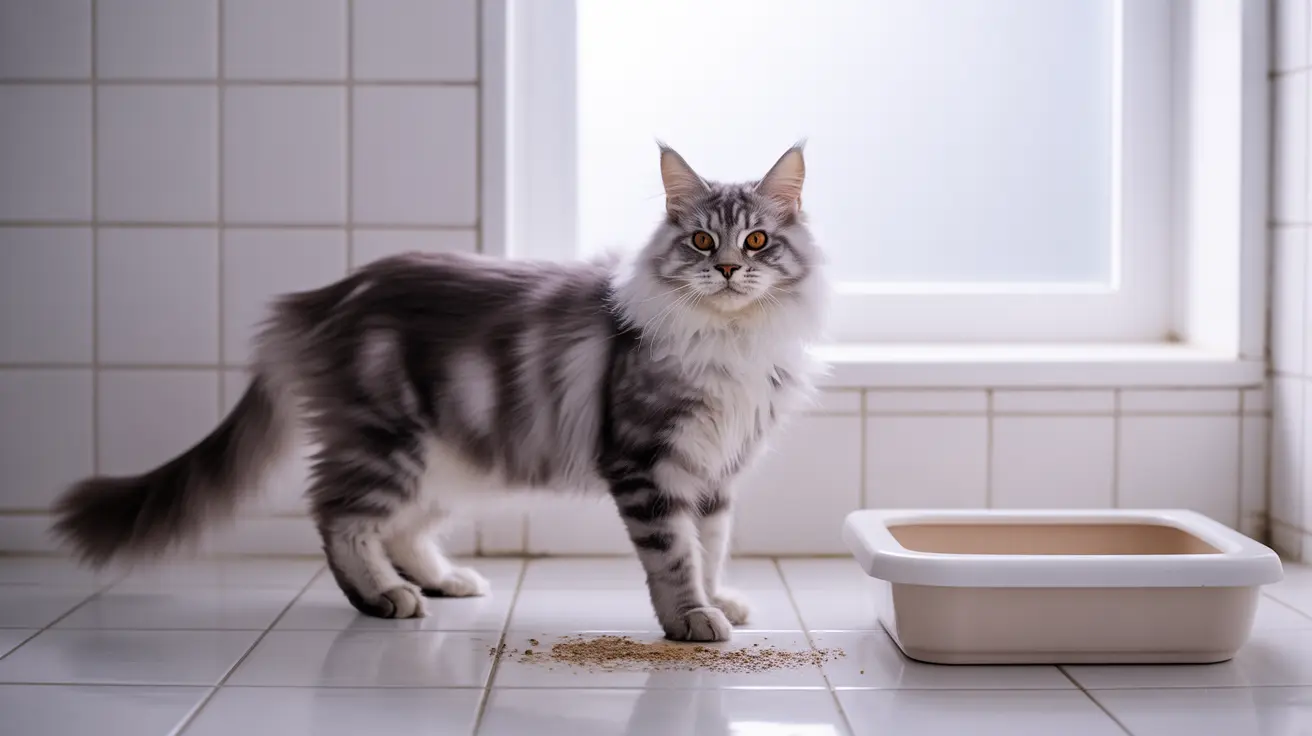When your cat starts leaking poop, it can be a distressing situation for both you and your pet. This condition, medically known as fecal incontinence, often signals an underlying health issue that requires attention. Understanding the causes, recognizing the symptoms, and knowing when to seek veterinary care are crucial for your cat's wellbeing.
In this comprehensive guide, we'll explore everything you need to know about cats leaking poop, from common causes to treatment options and preventive measures. Whether your cat is experiencing occasional accidents or chronic issues, this information will help you make informed decisions about their care.
Common Causes of Fecal Incontinence in Cats
Gastrointestinal Issues
Many cases of cats leaking poop stem from digestive problems. Diarrhea, often caused by dietary changes, food intolerances, or infections, can make it difficult for cats to control their bowel movements. Inflammatory Bowel Disease (IBD) is another common culprit, particularly in middle-aged and older cats.
Neurological Problems
Damage to the nerves controlling the anal sphincter can result in fecal incontinence. This may occur due to injury, spinal cord problems, or conditions affecting the tail. Some cats may develop incontinence following accidents or surgical procedures that impact nerve function.
Identifying Signs and Symptoms
Watch for these key indicators that your cat may be experiencing fecal incontinence:
- Involuntary release of stool while walking or sleeping
- Soiled fur around the hindquarters
- Frequent grooming of the anal area
- Visible irritation or redness around the anus
- Changes in litter box behavior
Diagnostic Process and Treatment Options
Your veterinarian will likely perform a thorough physical examination and may recommend several diagnostic tests to determine the underlying cause of your cat's condition. These might include:
- Blood work and fecal analysis
- Imaging studies (X-rays or ultrasound)
- Neurological evaluation
- Endoscopy in some cases
Treatment Approaches
Treatment varies depending on the underlying cause but may include:
- Medication for infection or inflammation
- Dietary modifications
- Probiotics and digestive supplements
- Surgery in severe cases
- Physical therapy for neurological cases
Prevention and Home Management
While not all causes of fecal incontinence are preventable, these steps can help minimize risks:
- Maintain a consistent, high-quality diet
- Regular veterinary check-ups
- Proper parasite prevention
- Keep your cat at a healthy weight
- Provide easy access to clean litter boxes
Frequently Asked Questions
What are the most common causes of my cat leaking poop and how can I recognize them?
The most common causes include diarrhea, inflammatory bowel disease, nerve damage, and anal sac problems. Look for signs like involuntary defecation, soiled fur, and changes in litter box habits.
How do veterinarians diagnose the reason behind a cat's fecal incontinence?
Veterinarians use a combination of physical examination, blood tests, fecal analysis, and imaging studies to determine the underlying cause. They may also perform neurological evaluations if nerve damage is suspected.
What treatment options are available for cats that are leaking poop due to gastrointestinal or neurological problems?
Treatment options include medications, dietary changes, probiotics, surgery, and physical therapy, depending on the underlying cause. The specific treatment plan will be tailored to your cat's condition.
How can I manage my cat's fecal leakage at home and keep them comfortable?
Keep your cat clean through regular grooming, provide easily accessible litter boxes, use pet diapers if necessary, and maintain a consistent routine. Consider waterproof bedding and regular cleaning to maintain hygiene.
When should I take my cat to the vet if I notice poop leaking or accidents outside the litter box?
Seek veterinary care immediately if you notice persistent leakage, signs of pain or distress, blood in the stool, or if your cat shows additional symptoms like lethargy or loss of appetite.
Conclusion
While cat leaking poop can be concerning, understanding the potential causes and seeking prompt veterinary care can lead to successful management of the condition. With proper diagnosis and treatment, many cats can experience significant improvement in their symptoms and quality of life.






